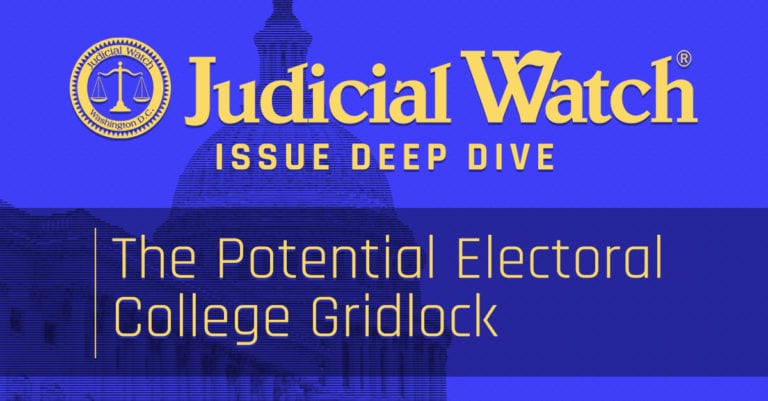

The Potential Electoral College Gridlock


“I want to remind you that the Constitution vests the authority in Congress in terms of blessing the electoral college outcome, not the mainstream media.”
Last Friday’s Weekly Update with Tom Fitton focused on the electoral college, and Congress’ role in determining the outcome of the still-disputed election. As Fitton has explained in previous Weekly Updates, states like Pennsylvania could have a dueling slate of electors. In other words, a situation in which the state appoints two different sets of electors; one slate appointed by the Republican state legislature and one slate from the Democratic Governor. In that case, it would be up to Congress to determine which set of electors to consider for the electoral college vote. “It’s not entirely clear how they should figure that out,” Fitton stated. “Federal law says they have to consider the slates authorized by the chief executive.” However, as Fitton states, who is the chief executive in this situation?
Whichever slate is considered, Members of Congress have the right to challenge the electors chosen by each state. In challenging the electors, “you need one objector from the House and one objector from the Senate – and they debate whether to challenge the objections or not.”
“Let’s say it’s a Republican Senate and they all vote to refuse to consider electors from disputed states. The House says one thing, the Senate says another. How is that adjudicated? John Eastman, a great constitutional scholar, says that the presiding officer is the Vice President and he could make that decision. He also says that the Supreme Court could come in and make that decision.”
“In theory, it could go to the House,” Fitton continued. “If there aren’t enough electors to put someone over 270, it becomes a state delegation vote.” As Fitton concluded, “you need to communicate with your State Legislators, Representatives, and Senators. Tell them how you feel.”
“The Left would have you believe that it’s out of your hands. It’s not. You have the right to petition your government, and you better do it right now,” Fitton affirmed. Support Judicial Watch today if you’re concerned with the integrity and transparency of our elections.














